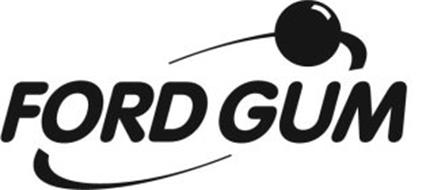Ford Sales Vending Machine Corp., East Aurora, NY. The serial number of the third machine is 102738, which Silent Salesmen Too dates to 1935 or 1936. This is a vintage Ford gum vending machine from the 1950s. Does anyone know if a low serial number like 820 is rare and how much these machines are restored.

In 2013 Ford Gum celebrated 100 years of being in the bulk vending business. The history of this company dates all the way back to 1913 when a 20 year old Ford Mason took out a loan to lease a large route of gumball vending machines. He was initially working as a roofer but needed a way to supplement his income in the cold winter months when the roofing business was slow. He discovered the relatively new vending industry and decided to take out a loan to lease 102 vending machines. At that time gumballs would vend for one penny. Ford recognized potential in the gumball vending business and three years later quit his roofing job to focus on vending full time. During this time gumball machines began to garner a negative reputation.
The machines were inconsistent and the gum that was dispensed was often of poor quality. This unsettling trend bothered Ford. He sought to infuse his business with integrity and overcome negative public perception. He worked with his father, a Baptist minister, develop a new machine that was more dependable. Using the church building as a headquarters to his fledgling business, he eventually developed and patented a new model machine. In 1917 he began manufacturing the gumball machine designed by his father and named his company Ford Vending Machine Co. Two years later Ford’s father, Wallace N.
Mason, was issued a Patent for “new and useful Improvements in Vending Machines.” In 1934 after years of successful business gained Ford a favorable reputation, he moved his company to Lockport, New York and renamed the company: Ford Gum & Machine Co. The new headquarters housed the manufacturing operation for the machines and gumballs.
Continuing his custom of combining integrity with innovation, Ford sought out a new marketing technique during the height of the great depression. He began selling his penny machines to charities that would split the profits with their organization. This revolutionary infusion of business with charity gave potential customers more than one reason to purchase Ford Gum. In the 1950’s Ronald Reagan was commissioned to record radio promotions. Transcribed here: “This is Ronald Reagan speaking.
I suggest you look for conveniently located gumball or chicle chew machines sponsored by your local Kiwanis club in your favorite neighborhood shopping area. A big share of your purchase price, still just a penny, is made available for service clubs throughout America to provide programs combating delinquency, and aids for crippled and handicapped children, when other funds are not available. This is just one of the many ways service clubs exercise their freedom to serve. The local Kiwanis club receives many dollars each year, enabling it to carry on and assist many worthwhile efforts helping boys and girls. Everyone; men, women, boys, and girls, will find real satisfaction by chewing and doing.
Make sure the gum is branded Ford and in a Kiwanis sponsored machine.” “This is Ronald Reagan speaking. Help your local Lions Club as it endeavors to help needy boys and girls by quickly finding a club sponsored machine that contains ball gum or chicle chew branded Ford. Service clubs all over America sponsor this program. Look for them in your favorite shopping area.
Ebook Kamus Besar Bahasa Indonesia more. Through this Fordway Plan the local lions club is exercising its right of freedom to serve by assisting less fortunate boys and girls in many ways when other funds are not available. Make your pennies count by chewing lion sponsored gum. This is a real American way of serving our needy neighbors; keeping our nation great.” Ford always made charitable contributions as a part of his business plan. Some attribute his altruistic disposition to his upbringing in his father’s church. Whatever the cause, Ford’s strategy to combine charity with his business is one of the reasons his company was able to survive when many others failed.
Along with this method he also introduced other new practices into the industry. He hired solicitors to venture into new markets and establish vending routes. After the vending routes had been established they would then be sold to a local operator and run independently. Before this time bulk vending was considered a mom and pop business. The industry was now being run at a much larger scale. In order to distinguish his product from other lower quality gumballs, Ford began branding his name on each gumball. This was important enough to him; he had to seek out a printing company capable of printing on the curved side of a gumball.
New Pages
- Anatomia Del Miedo Jose Antonio Marina Pdf
- Cuentos De Futbol Valdano Pdf - Download Free Apps
- Signature Outlook Html File
- Adobe Photoshop Cs6 V13.0 Extended Final Multilanguage - Cracked
- Ps3 Pro Evolution Soccer 2013 Patch
- Ashrae Cooling And Heating Load Calculation Manual Grp 158 Centimeters
- Virtualbox Vista
- Download Arcam A65 Plus Manual
- Maplesoft Maple V12.0-tbe
- Microsoft Office 2007 Enterprise Activated And Tested
- Typhoon Usb 2.0 4-port Hub Driver